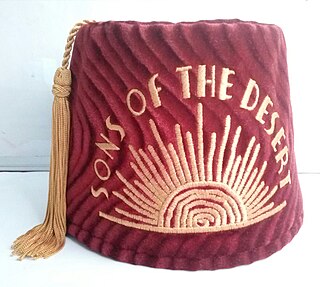This page is based on this
Wikipedia article Text is available under the
CC BY-SA 4.0 license; additional terms may apply.
Images, videos and audio are available under their respective licenses.

Laurel and Hardy were a comedy duo act during the early Classical Hollywood era of American cinema. The team was composed of Englishman Stan Laurel (1890–1965) and American Oliver Hardy (1892–1957). They became well known during the late 1920s to the mid-1940s for their slapstick comedy, with Laurel playing the clumsy and childlike friend of the pompous bully Hardy. The duo's signature tune is known variously as "The Cuckoo Song", "Ku-Ku", or "The Dance of the Cuckoos". It was played over the opening credits of their films and has become as emblematic of the duo as their bowler hats.

Oliver Norvell Hardy was an American comic actor and one half of Laurel and Hardy, the double act that began in the era of silent films and lasted from 1927 to 1955. He appeared with his comedy partner Stan Laurel in 107 short films, feature films, and cameo roles. He was credited with his first film Outwitting Dad in 1914. In most of his silent films before joining producer Hal Roach, he was billed on screen as "Babe Hardy."
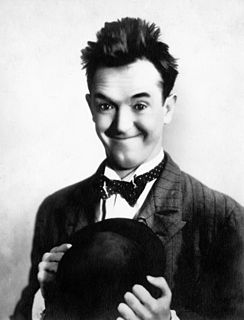
Stan Laurel was an English comic actor, writer, and film director who was part of the comedy duo Laurel and Hardy. He appeared with his comedy partner Oliver Hardy in 107 short films, feature films, and cameo roles.
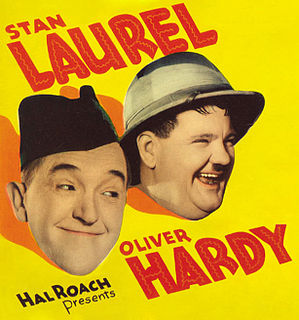
Laurel and Hardy were a motion picture comedy team whose official filmography consists of 106 films released from 1921 and 1951. Together they appeared in 34 silent shorts, 45 sound shorts, and 27 full-length sound feature films. In addition to these, Laurel and Hardy appeared in at least 20 foreign-language versions of their films and a promotional film, Galaxy of Stars (1936), made for European film distributors.
Harry Bernard was a movie comedian who worked for Mack Sennett and Hal Roach.

Brats is a 1930 Laurel and Hardy comedy short. The film was directed by James Parrott. Laurel and Hardy play dual roles as their own children. It also inspired a helper group for the Michigan tent for The Sons of the Desert, which is composed of all the child members of the tent. This is the first of only three films where the boys each play a dual role: the second is Twice Two and the third and last is Our Relations.

We Faw Down is a 1928 two-reel silent comedy starring Laurel and Hardy and directed by Leo McCarey. It was shot in August and September 1928, and released by Metro-Goldwyn-Mayer on December 29 of that year, with synchronized music and sound effects in theaters wired for sound.

You're Darn Tootin' is a 1928 Laurel & Hardy silent comedy short, produced by Hal Roach. It was shot in January 1928 and released April 21, 1928, by Metro-Goldwyn-Mayer. The title is an American idiomatic phrase akin to "You're darn right!"

Two Tars is a Laurel and Hardy short film, directed by James Parrott and released in 1928. A silent film, it largely consists of a 'reciprocal destruction' involving motorists in a traffic jam, which has much inventive mayhem with the destruction of various automobiles.

The Second Hundred Years is a 1927 American silent comedy short film starring Stan Laurel and Oliver Hardy prior to their official billing as the duo Laurel and Hardy. The team appeared in a total of 107 films between 1921 and 1951.

Leave 'Em Laughing is a 1928 two-reel silent film starring Stan Laurel and Oliver Hardy. Produced by the Hal Roach Studios, it was shot in October, 1927 and released January 28, 1928 by Metro-Goldwyn-Mayer.
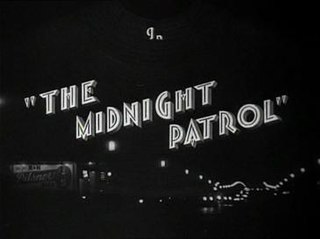
For the television cartoon, see Midnight Patrol: Adventures in the Dream Zone.
Scott MacGillivray is an American non-fiction author specializing in motion picture history.
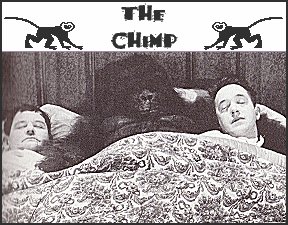
The Chimp is a Laurel and Hardy short film made in 1932. It was directed by James Parrott, produced by Hal Roach and distributed by Metro-Goldwyn-Mayer. The second half of the film is a reworking from their last silent film Angora Love (1929), itself reworked into a short film the previous year, Laughing Gravy (1931).

Night Owls is a 1930 American Pre-Code Laurel and Hardy short film. It was filmed in October and November 1929, and released January 4, 1930. The film was also made in two foreign-language versions: Spanish: Ladrones and Italian: Ladroni; and also as Esperanto: Ŝtelistoj, the constructed international language. The foreign versions retained not only the headliners, but Edgar Kennedy and James Finlayson as well.
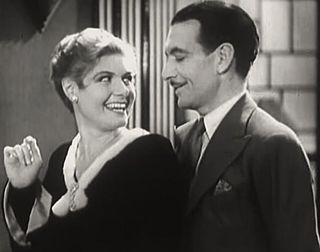
Dorothy Christy was an American actress.

Randy Skretvedt is an American film and music scholar, author, lecturer and broadcaster. His 1987 book Laurel and Hardy: The Magic Behind the Movies is the reference standard for Laurel and Hardy fans. In 2016, Skretvedt put the book through a massive update and enhancement, retitling it LAUREL AND HARDY: THE MAGIC BEHIND THE MOVIES and publishing it through Bonaventure Press as an oversized 8-1/2 x 11 hardcover book, increasing the text by 50% and quadrupling the number of pictures included. Early supporters of the Kickstarter campaign for this edition also received a custom audio CD of selected excerpts from Mr. Skretvedt's interviews with Laurel and Hardy colleagues and co-workers.
"Honolulu Baby" is a song written by Marvin Hatley for the 1933 Laurel and Hardy film Sons of the Desert. Ty Parvis performed the song in the film, which is later performed by Oliver Hardy and Stan Laurel.

